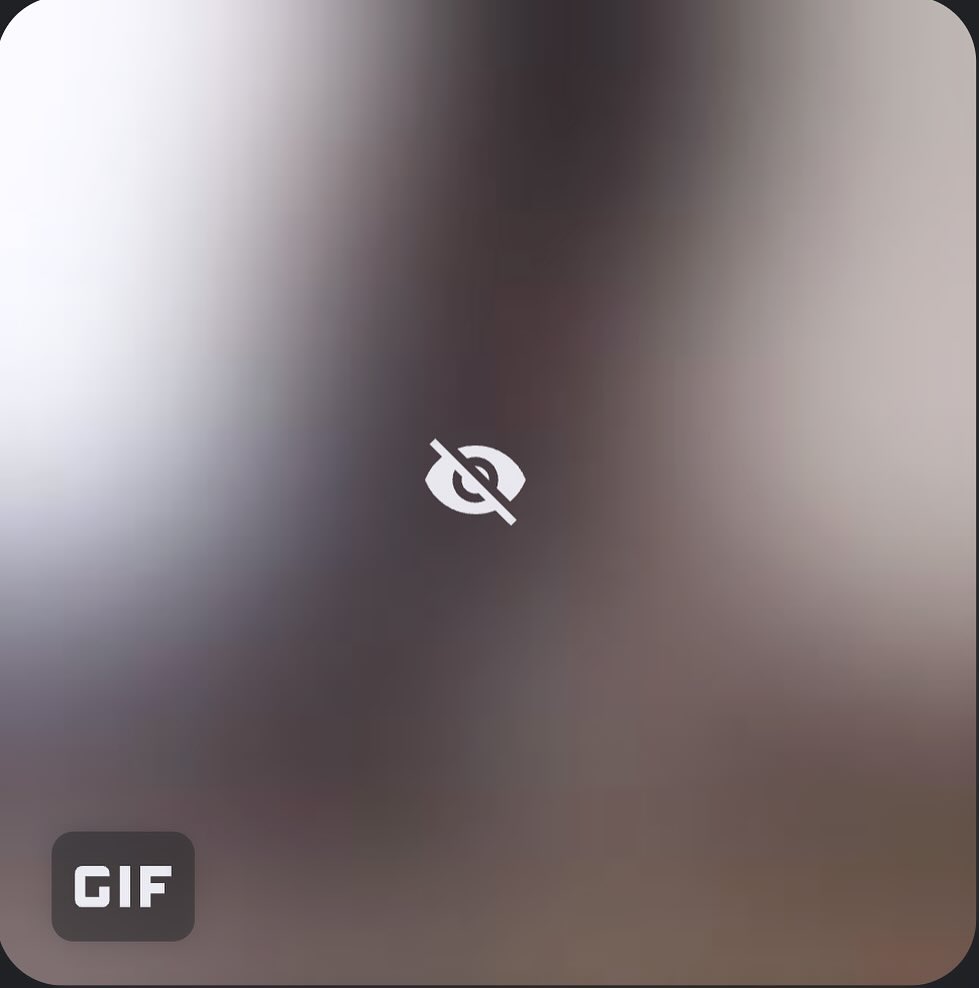Understanding Megnutt Leaks: A Look At Online Content And Digital Privacy
The internet, in a way, is a vast place where information travels at lightning speed, sometimes without permission. This is especially true when we talk about personal content. For many, the phrase "megnutt leaks" brings to mind a certain kind of online event, a moment when private images or videos become public. It's a topic that, honestly, sparks a lot of curiosity, but also a good deal of concern about privacy and what happens when personal boundaries are crossed in the digital space.
Thinking about how content gets shared online, it's pretty clear that once something is out there, it's very, very hard to pull it back. This idea, you know, of "leaked" material, isn't new, but it tends to be a big deal when it involves individuals who have some kind of public presence. People often wonder how these situations come about and what the real effects are on everyone involved, especially the person whose privacy has been compromised. It's a complex area, really.
Our goal here is to explore the broader picture surrounding "megnutt leaks" and similar incidents. We'll talk about the ethical questions that pop up, the impact on individuals, and why protecting personal information online is so important for all of us, actually. This discussion isn't about the specific content itself, but rather about the circumstances and the lessons we can learn about digital responsibility and respecting others' private lives, more or less, as of June 13, 2024.
- Tails Comic Two Babies One Fox
- Eliza Leaks
- Daisys Destruction
- Two Babies And One Fox
- Is Emily Compagno Married
Table of Contents
- The Story Behind "Megnutt Leaks" and Online Content
- Why "Leaked" Content Captures Attention
- The Human Side of Digital Content Sharing
- The Wider Implications for Digital Privacy
- What Happens When Content is Shared Without Permission?
- Frequently Asked Questions About Online Content and Privacy
The Story Behind "Megnutt Leaks" and Online Content
When people mention "megnutt leaks," they are, in some respects, referring to instances where private content, supposedly belonging to a personality known as "Megnutt," found its way onto the public internet without consent. This kind of event is not unique to one individual; it's a pattern seen with various public figures and even private citizens. The core issue here is the unauthorized distribution of someone's personal material, which is, basically, a significant violation of their privacy. It's a situation that brings up many questions about how we interact with information online and what our responsibilities are.
The very idea of "leaks" often implies a breach, a moment when something meant to be private becomes very, very public. This can happen through various means, from hacking to someone sharing content they were trusted with. The impact of such events can be far-reaching, affecting not just the person whose content is shared, but also the wider online community and how they view privacy and consent. It's a reminder that the digital world, for all its connections, also carries considerable risks, you know.
Who is "Megnutt" in This Context?
In the context of "megnutt leaks," "Megnutt" refers to an online personality or content creator who has, over time, gained a following on various social media platforms. Like many people who become well-known online, their public presence can, unfortunately, make them a target for privacy breaches. The focus of this discussion, however, is not on the individual's personal life or details, which are, quite frankly, private. Instead, it's about the phenomenon of "leaks" themselves and the ethical considerations that arise from them. The specifics of any individual's personal life are not for public consumption, and respecting that boundary is key, more or less.
When we talk about "Megnutt leaks," we are, in a way, looking at a case study of what can happen when personal content is compromised. It highlights the vulnerability that anyone, especially those with a public profile, can face online. The important thing to remember is that the unauthorized sharing of private material is a harmful act, regardless of who the person is. It's about the principle of privacy and the right to control one's own image and information, so.
| Aspect | Description |
|---|---|
| **Nature of the Content** | Typically private images or videos shared without permission. |
| **Source of Leaks** | Can vary widely, including hacking, trust breaches, or accidental sharing. |
| **Impact on Individuals** | Significant emotional distress, reputational damage, and feelings of violation. |
| **Online Communities** | Certain online groups or forums might actively seek out or share such content. |
| **Ethical Considerations** | Raises serious questions about consent, privacy, and digital responsibility. |
| **Legal Repercussions** | Unauthorized sharing of private content can lead to legal action, depending on jurisdiction. |
Why "Leaked" Content Captures Attention
There's something about "leaked" content that, honestly, seems to draw a crowd. It's a curious thing, this fascination with material that was never meant for public eyes. Part of it might be the forbidden nature of it, the feeling of seeing something exclusive or secret. This kind of content often spreads very, very quickly across the internet, fueled by curiosity and, sadly, sometimes by a disregard for privacy. It's a pattern that we see repeated, time and again, when private information makes its way into the public domain, you know.
The speed at which these things travel is, like, pretty astonishing. One moment, something is private, and the next, it's potentially viewable by thousands, or even millions. This rapid spread is, in some respects, a testament to how connected our digital world is, but also how little control we often have over our personal information once it's out there. It's a stark reminder of the digital footprint we all leave and the potential vulnerabilities that come with it, so.
The Allure of Forbidden Information
Humans, it seems, have a natural pull towards things that are considered off-limits or secret. This tendency, in a way, plays a big part in why "leaked" content gains so much traction. The idea of seeing something that was supposed to be private creates a sense of intrigue, a feeling of being let in on a secret. This curiosity can, unfortunately, overshadow ethical considerations for some people, leading them to seek out and even share such material. It's a complex psychological aspect of online behavior, really.
This curiosity, however, often comes at a significant cost to the person whose privacy has been violated. The momentary thrill of seeing "forbidden" content can't compare to the lasting harm it causes. It's important to remember that behind every piece of "leaked" content is a real person, and their feelings and rights matter. Understanding this helps us, more or less, think more carefully about our own online actions and choices, that.
Online Communities and Sharing
Certain online communities, sadly, sometimes become hubs for the sharing of unauthorized content. This is, in a way, where things like "megnutt leaks" can gain significant momentum. These groups might be dedicated to specific topics, or they might simply be places where people gather to share all sorts of things, including private material. The anonymity that the internet sometimes offers can, unfortunately, make people feel bolder about sharing things they wouldn't in real life. We've seen communities, like those mentioned in the provided text, where users discuss having or selling such content, which is, basically, a concerning aspect of online culture.
The pressure to be part of these groups, or the desire to access content, can lead people to engage in activities they might later regret. As the provided text mentions, some individuals feel "really guilty" after looking at or participating in the sharing of leaked pictures. This feeling of guilt, you know, highlights the moral conflict that can arise when personal ethics clash with online behavior. It shows that even within these communities, there's an awareness, sometimes after the fact, of the harm being done. It's a reminder that our online actions have real-world consequences, even if they feel distant at the moment, so.
The Human Side of Digital Content Sharing
It's easy to forget, when we're online, that there are real people behind the screens. This is especially true when discussing something like "megnutt leaks." The focus often shifts to the content itself, rather than the profound human impact of having one's privacy invaded. But, actually, the emotional and personal toll on the individual whose content is shared without permission is very, very significant. It's a deeply violating experience that can affect someone's sense of safety, trust, and even their mental well-being, you know.
Beyond the person directly affected, there's also the human element of those who view or share such content. As the provided text shows, some individuals experience genuine feelings of guilt and regret after engaging with "leaked" material. This suggests a broader ethical struggle within the online community, where people grapple with the consequences of their digital actions. It's a stark reminder that digital interactions are, in a way, still human interactions, and they carry real emotional weight, so.
Feelings of Guilt and Regret
The provided text offers a powerful glimpse into the human experience of engaging with "leaked" content. One person shared, "I used to look at leaked pictures of celebrities and other people such as the megnutt leaks, as recently as a few months ago, I feel really guilty for this and I don’t know." This sentiment, honestly, is not isolated. It speaks to a deeper moral conflict that can arise when curiosity or peer influence leads someone to participate in something they later realize is wrong. The feeling of guilt, you know, is a natural response to actions that go against one's sense of right and wrong. It shows a recognition of the harm caused, even if indirectly.
This regret can stem from understanding the violation of privacy involved, or from simply realizing the negative impact on another person. It's a very, very human reaction to a situation that, in a way, highlights the ethical dilemmas of the digital age. For anyone who has felt this way, it's a sign of empathy and a willingness to reflect on one's actions. Recognizing these feelings is, actually, an important step towards fostering a more respectful and ethical online environment, that.
The Impact on Individuals
The impact of having private content, like "megnutt leaks," spread online without consent is, quite frankly, devastating for the individual involved. It's not just about the pictures or videos; it's about the loss of control over one's own image and narrative. Victims often face immense emotional distress, anxiety, and even depression. Their reputation can be severely damaged, affecting their personal relationships, career prospects, and overall sense of security. The feeling of being exposed and vulnerable can linger for a very, very long time, you know.
Beyond the immediate emotional fallout, there are practical challenges too. Individuals may have to spend considerable time and effort trying to get the content removed from various platforms, a task that is, basically, nearly impossible given the speed at which things spread online. This ongoing struggle adds to their burden, making it hard to move past the incident. It's a stark reminder that what might seem like harmless curiosity to some can cause profound and lasting harm to others, so. Learn more about online safety on our site.
The Wider Implications for Digital Privacy
The discussion around "megnutt leaks" extends far beyond one individual; it shines a very, very bright light on the broader challenges of digital privacy for everyone. In an age where so much of our lives happens online, protecting our personal information has become more important than ever. Incidents like these serve as a stark reminder that our digital footprint is always growing, and with it, the potential for our private moments to become public. It's a topic that, honestly, affects us all, whether we're content creators or just everyday internet users, you know.
Understanding the implications means looking at how our data is stored, shared, and protected, or sometimes, not protected. It involves thinking about the security measures we use, the permissions we grant to apps and websites, and the overall culture of sharing online. The stakes are, actually, quite high, as a breach of privacy can have serious real-world consequences. This is why it's so important to be aware and proactive about managing our digital lives, more or less, every day.
Protecting Your Online Presence
Given the risks highlighted by situations like "megnutt leaks," taking steps to protect your online presence is, basically, pretty vital. This means being very, very mindful of what you share, with whom you share it, and on which platforms. Strong, unique passwords for all your accounts are a must, and enabling two-factor authentication adds an extra layer of security. Think of it as putting multiple locks on your digital doors, so.
Regularly reviewing your privacy settings on social media and other online services is also a good habit. Make sure you understand who can see your posts, photos, and personal information. Be cautious about clicking on suspicious links or downloading files from unknown sources, as these can be ways for malicious actors to gain access to your devices and data. It's about being proactive and staying informed, actually, to keep your digital life as secure as possible, that.
Ethical Consumption of Content
Beyond protecting your own privacy, there's a big ethical responsibility that comes with being an internet user: how you consume content. When you encounter "leaked" material, like "megnutt leaks," or anything that seems to be private content shared without consent, it's very, very important to pause and think. Engaging with such content, even just viewing it, contributes to the demand that fuels these privacy breaches. It validates the harmful act of sharing someone's private life without their permission, you know.
Choosing not to view, share, or download unauthorized private content is a powerful way to stand against privacy violations. It's about respecting the dignity and autonomy of others online. If you see such content, reporting it to the platform it's on can help in its removal. This kind of responsible digital citizenship helps create a safer and more respectful online environment for everyone. It's a simple choice, really, but one that has a big impact on the collective digital space, so.
What Happens When Content is Shared Without Permission?
When content, particularly private material like that associated with "megnutt leaks," is shared without permission, a whole chain of events can, unfortunately, unfold. The immediate consequence is, basically, the violation of the individual's privacy, but the ripple effects can be far-reaching and long-lasting. It's not just about the initial act of sharing; it's about the difficulty of controlling that content once it's out there on the internet. This lack of control is, honestly, one of the most distressing aspects for victims, you know.
The unauthorized distribution of private content can also lead to various forms of harassment and abuse directed at the person involved. This can happen on social media, in forums, or even in real life. The internet, sadly, sometimes provides a platform for very, very negative behaviors, and victims of privacy breaches often bear the brunt of this. Understanding these consequences is important for everyone who uses the internet, as it highlights the real harm that can come from seemingly small actions online, so.
Legal and Ethical Considerations
The unauthorized sharing of private content, including incidents like "megnutt leaks," carries significant legal and ethical implications. Legally, depending on where the content was shared from and where the person is located, such actions can constitute various offenses, including privacy violations, copyright infringement, or even revenge porn laws. Many jurisdictions have laws in place to protect individuals from having their private images or videos distributed without consent, and those who share such content can face serious penalties, actually.
Ethically, the act of sharing private content without permission is a clear breach of trust and respect. It shows a disregard for another person's autonomy and their right to control their own image. Even if something is easily accessible online, that doesn't make it right to share it, particularly if it was originally private. The ethical choice is always to respect privacy and consent, and to consider the human impact of your actions before sharing anything, you know. It's a fundamental principle of respectful online interaction, that.
The Persistence of Online Information
One of the most challenging aspects of "leaked" content, like "megnutt leaks," is its persistence online. Once private images or videos are uploaded to the
- Tails Comic Two Babies One Fox
- Was The Shah Of Iran A Good Leader
- Daisys Destruction
- Aishah Sofey Erome
- Aishah Sofey Only Leak

Unveiling The Truth Behind Megnutt Leaked: A Deep Dive

Meet Megnutt: The Rise and Success of a YouTube Powerhouse

Megan Guthrie Wiki, Age, Boyfriends, Net Worth & More